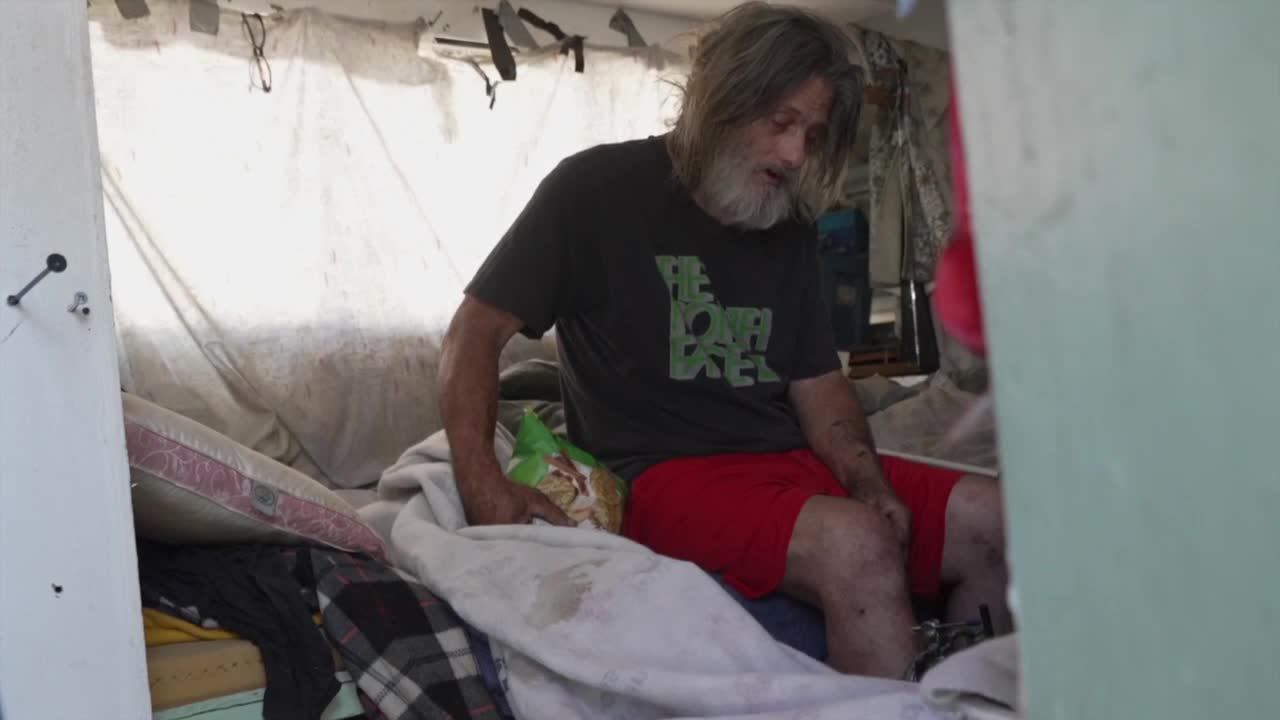(HAVILAH), Calif. (KERO) — A year after the Borel Fire tore through the Kern River Valley community of Havilah, recovery remains out of reach for some survivors—many of whom lost homes, pets, and decades of hard work. Among them is Danny Gonzales, a longtime resident still struggling to survive amid mounting hardships.
Gonzales has lived in Havilah since 1988, working in construction and mechanical trades. For 36 years, he built a quiet life with his cats and a home surrounded by trees—until the Borel Fire reduced it all to ash.
“I had trees. Trees that lined up my driveway,” Gonzales recalled. “I had all kinds of trees and everything.”
In the months after the fire, Gonzales had no family to fall back on and lived out of his truck for half a year.
“To sit, and stay up, boy, that was so hard,” he said.
Local groups like the Kern River Valley Bridge Connection and Flood Ministries offered food and access to showers, but his situation worsened after he was hospitalized with a broken leg following a car accident.
When he was discharged, he returned to a trailer without electricity or water.
“Just laying in here,” he said from his bed, “wishing I could get out and go get something to eat and feed my cats.”
His property was one of 158 cleared in Havilah through the state’s Phase II debris removal program, according to Kern County Assistant Director of Environmental Health Amy Rutledge. Of those, 86 have received final clearance to begin rebuilding.
“The rest are in process of being worked on for various reasons,” Rutledge said. “We’ve issued three permits through our land and water program, which means they’re at the stage to get a well or septic system to start rebuilding.”
Kern County waived fees to speed up the permitting process for fire victims, but only seven total permits have been submitted so far, despite 223 structures being lost in the fire.
“We had challenges such as weather and access issues due to the rural nature of the area,” Rutledge added. “I know that can be really difficult, especially for individuals whose whole life—or generations—have been there.”
Gonzales said he feels abandoned by the system.
“I called, and they just hang up on me,” he said. “I worked hard for what I had, and it all burned up in one day.”
After a recent interview, local health professionals were contacted to check in on Gonzales. They determined he needed further care and arranged for an ambulance to transport him to the hospital for treatment. A few days later, he was released from the hospital and returned to his property where his neighbors have since stopped by to check on him.
Stay in Touch with Us Anytime, Anywhere:



